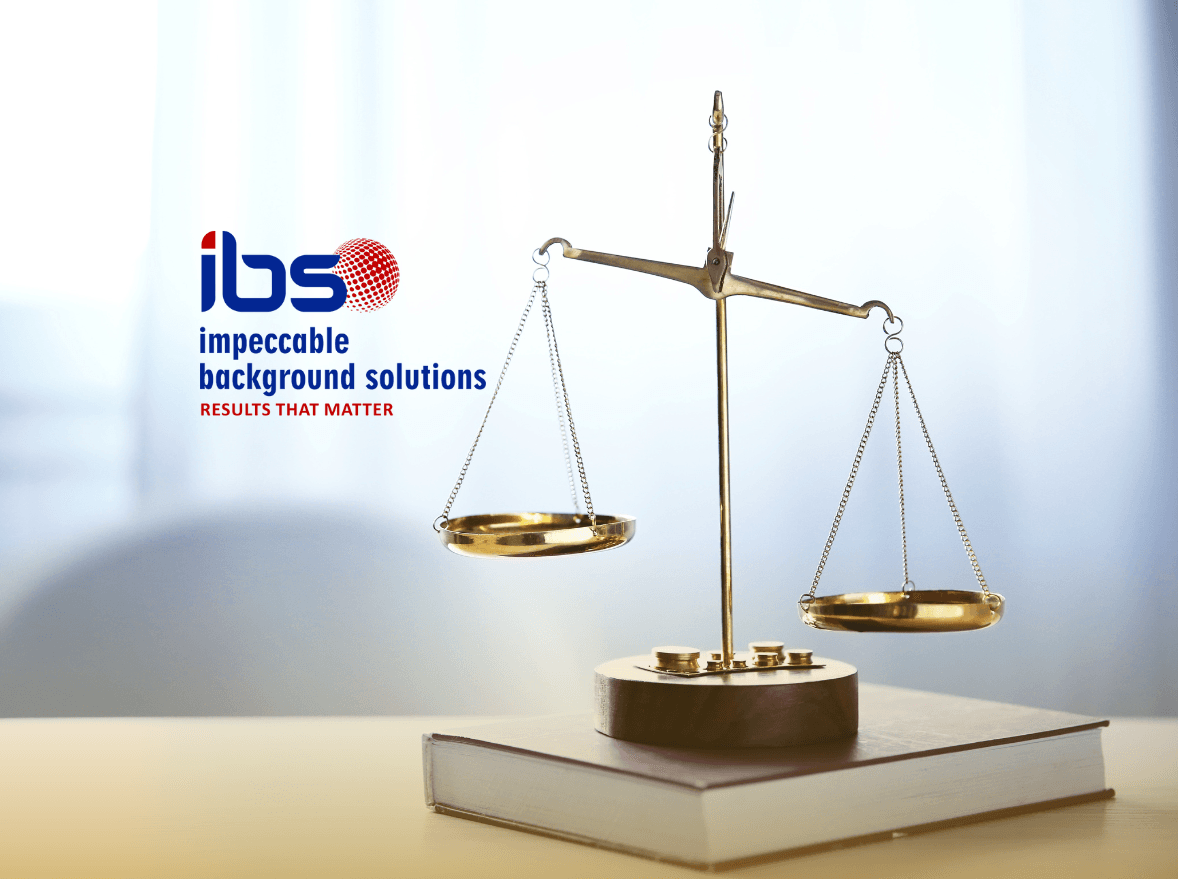In today’s fast-paced and ever-changing world, conducting thorough background checks has become crucial to any hiring process. Hiring managers and employers are constantly seeking effective methods to gather accurate information about potential candidates.
One innovative approach that has gained significant recognition is using case briefs. These concise summaries of legal cases may initially seem unrelated to employment screening, but they hold immense potential to enhance the accuracy and comprehensiveness of background checks.
In this blog post, we will dive deeper into case briefs, exploring their benefits and best practices for incorporating them into your screening process, showcasing how these short summaries can significantly enhance your background checks. So, get ready to unlock the untapped potential of case briefs and revolutionize your hiring process like never before!
Maximize Your Results: Utilizing Case Briefs for Background Checks
Understanding the Basics of Case Briefs

Case briefs are an essential tool in the legal field. They provide a concise summary of a court case, highlighting the key facts, issues, and holdings. By understanding the basics of case briefs, you can improve your legal research and analysis skills. Whether you are a law student, a paralegal, or an attorney, mastering the art of case briefing can enhance your background checks and legal practice.
To start, let’s break down the components of a case brief. The first element is the case name, which includes the names of the parties involved. This helps to identify the case and distinguish it from others. Next, you have the court and the date of the decision. This information is crucial as it establishes the legal authority and the time frame of the case.
Moving on, the facts section provides a brief overview of the relevant circumstances surrounding the case. It includes important details such as who the parties are, what they did, and where the events took place. Understanding the facts is vital for comprehending the context in which the legal issue arose.
The issues section outlines the specific legal questions that the court needs to address. This part helps to identify the key points of contention and focuses the analysis. It is important to clearly identify the issues to ensure a comprehensive understanding of the case.
Next, we have the holdings or the court’s decisions. This section summarizes the court’s ruling on each issue. It is essential to grasp the court’s reasoning and its interpretation of the law. The holdings provide guidance for future cases and are often cited as legal precedent.
Additionally, case briefs may include the court’s reasoning or the rationale behind its decision. This section explains the legal principles and precedents that influenced the court’s analysis. Understanding the court’s reasoning helps to apply the case to similar situations and to anticipate potential outcomes.
Lastly, the dissenting or concurring opinions offer alternative viewpoints on the case. While not binding, these opinions provide valuable insights into legal interpretations and can shape future legal developments. It is important to consider these opinions to gain a comprehensive understanding of the case.
The Benefits of Incorporating Case Briefs into Background Checks

When it comes to background checks, incorporating case briefs can provide numerous benefits. Case briefs, which are summaries of legal cases, offer valuable insights into an individual’s past legal involvement. By including case briefs in background checks, employers and organizations can gain a better understanding of a person’s character, trustworthiness, and reliability. Let’s explore the benefits of incorporating case briefs into background checks.
- Comprehensive Understanding: Case briefs provide a comprehensive understanding of an individual’s legal history. They summarize the key details of a case, including the parties involved, the legal issues at hand, and the court’s decision. This information helps employers assess the potential risks associated with hiring a particular candidate or partnering with a specific individual.
- Identifying Patterns: By analyzing case briefs, employers can identify any patterns or trends in an individual’s legal history. This can be particularly helpful in identifying recurring issues such as fraud, theft, or unethical behavior. Identifying these patterns allows employers to make informed decisions when considering someone for a job position or business partnership.
- Assessing Risk: Case briefs enable employers to assess the level of risk associated with a candidate or business partner. For example, if an individual has a history of lawsuits related to intellectual property infringement, it may raise concerns about their ability to respect and protect confidential information. By incorporating case briefs into background checks, employers can make more informed decisions about potential risks and take appropriate measures to mitigate them.
- Protecting Reputation: Understanding an individual’s legal history can help protect an organization’s reputation. By incorporating case briefs into background checks, employers can avoid hiring individuals with a history of fraudulent activities, negligence, or unethical behavior. This not only protects the organization from potential legal and financial risks but also safeguards its reputation in the industry.
- Complying With Regulations: Depending on the industry or job role, certain regulations and legal requirements may need to be considered during the hiring process. By including case briefs in background checks, employers can ensure compliance with these regulations, such as those related to financial integrity, professional ethics, or safety standards. Incorporating case briefs into background checks offers valuable insights into an individual’s legal history, enabling employers to make more informed decisions.
Analyzing Civil Cases: Uncovering Patterns and Red Flags

When it comes to analyzing civil cases, one effective approach is to uncover patterns and red flags that may be indicative of important factors. One tool that can greatly enhance this process is the use of case briefs. By utilizing case briefs, you can gain valuable insights into the background of a case, allowing you to identify potential patterns and red flags more easily.
Case briefs are concise summaries of court cases that highlight the key facts, legal issues, and rulings. They provide a comprehensive overview of the case, allowing you to quickly grasp the essential details. These briefs typically include information such as the parties involved, the legal arguments presented, and the court’s decision.
When conducting background checks on civil cases, case briefs can be particularly beneficial. They enable you to efficiently review multiple cases and identify any commonalities or discrepancies. By examining a series of case briefs, you can spot recurring patterns in legal strategies, judge’s decisions, or even the behavior of the parties involved.
One aspect to watch out for when analyzing case briefs are red flags. These are warning signs that may indicate potential issues or irregularities in a case. Red flags can take various forms, such as inconsistencies in the facts presented, questionable legal arguments, or suspicious behavior by the parties involved. By identifying these red flags early on, you can delve deeper into the case and uncover any hidden information or motivations.
Additionally, analyzing case briefs can help you understand how different courts interpret and apply the law. Each court may have its own precedents and legal doctrines that influence their decisions. By studying case briefs from different jurisdictions or levels of courts, you can gain a broader perspective on how the law is interpreted and enforced.
Examining Criminal Convictions: Identifying Potential Risks

One of the key advantages of utilizing case briefs in background checks is the ability to identify potential risks associated with a criminal conviction. By analyzing the facts of a case, the legal arguments presented, and the court’s decision, individuals can assess the severity and nature of the conviction.
Case briefs can shed light on the specific charges, providing insights into the potential harm caused by the individual’s actions. This information can be crucial in determining the level of risk posed by a criminal conviction and whether it is relevant to the specific context in which it is being considered.
In addition to providing information about the case itself, case briefs can also offer valuable insights into the legal reasoning employed by the court. This can help individuals and organizations understand the legal principles and precedents that guided the court’s decision.
By examining the legal arguments made by both sides, individuals can gain a better understanding of the strengths and weaknesses of the case. This knowledge can be invaluable in assessing the potential risks associated with a criminal conviction and evaluating its impact on the individual’s trustworthiness and credibility.
Furthermore, case briefs can also provide individuals with a broader perspective on the legal landscape surrounding a particular criminal conviction. By reviewing case briefs from similar cases or cases with similar legal issues, individuals can identify trends, patterns, and common outcomes.
This comparative analysis can help individuals and organizations assess the consistency and reliability of the legal system in treating similar criminal convictions. It can also assist in evaluating the potential risks by considering how the court has handled similar cases in the past.
Investigating Lawsuits Involving Previous Employers: Assessing Workplace Behavior

Case briefs are an essential tool for conducting comprehensive background checks on potential employees. In the process of investigating lawsuits involving previous employers, case briefs can provide valuable insights into an individual’s workplace behavior. By analyzing the details of past legal cases, employers can assess the level of professionalism, ethics, and integrity that an applicant possesses. Let’s explore how case briefs can enhance the effectiveness of background checks.
When conducting a background check, employers typically look for any red flags that may indicate potential issues with an applicant’s work history or character. Lawsuits involving previous employers can provide valuable information in this regard. By reviewing case briefs, employers can gain a deeper understanding of the circumstances surrounding the lawsuit and the behavior of the individual involved.
Case briefs often contain detailed accounts of workplace incidents, allegations of misconduct, and the outcomes of the legal proceedings. This information can help employers evaluate how an applicant handled difficult situations in the past, their adherence to company policies, and their ability to maintain a professional demeanor.
In addition to assessing an applicant’s behavior, case briefs can also reveal patterns or recurring issues. If multiple lawsuits involve an individual, it may indicate a consistent problem with their workplace behavior or a lack of ethical conduct. This knowledge allows employers to make informed decisions about whether or not to proceed with the hiring process.
Furthermore, case briefs can provide valuable insights into an applicant’s honesty and transparency. If an individual fails to disclose previous lawsuits or provides misleading information during the application process, it raises concerns about their integrity. By cross-referencing the information provided by the applicant with the details from case briefs, employers can identify any discrepancies and assess the applicant’s credibility.
To effectively utilize case briefs in background checks, it is crucial for employers to have access to reliable and up-to-date legal databases. These databases should provide comprehensive information about lawsuits, including the parties involved, the nature of the claims, and the outcomes. By leveraging these resources, employers can ensure that they have all the necessary information to make informed decisions about potential hires.
Best Practices for Incorporating Case Briefs into Your Screening Process

To ensure that you are effectively incorporating case briefs into your screening process, here are some best practices to consider:
- Selecting Relevant Case Briefs: When incorporating case briefs into your screening process, it is essential to choose relevant cases that are directly related to the position or industry you are hiring for. By focusing on cases that are similar in nature to the potential candidate’s background, you can gather valuable insights into their legal history and assess any potential risks.
- Thoroughly Analyzing Case Briefs: Once you have selected the appropriate case briefs, it is crucial to thoroughly analyze the information contained within them. Look for key details such as the charges, outcomes, and any significant legal precedents established by the case. This analysis will help you gauge the potential impact of the individual’s legal history on their suitability for the position.
- Cross-Referencing Case Briefs: To ensure the accuracy and relevance of the information provided in case briefs, it is important to cross-reference the details with other reliable sources. This can include conducting additional research or consulting legal experts. By cross-referencing case briefs, you can verify the information and make more well-informed decisions during the screening process.
- Maintaining Confidentiality and Compliance: When incorporating case briefs into your screening process, it is crucial to adhere to confidentiality and compliance guidelines. Ensure that the handling and storage of case briefs are in alignment with data protection regulations. This includes securely storing and disposing of any sensitive information contained within the case briefs, as well as obtaining appropriate consent from candidates when required.
- Documenting Findings: As you incorporate case briefs into your screening process, it is essential to maintain proper documentation of your findings. This documentation can serve as a valuable resource for future reference and can also demonstrate your due diligence in the screening process. Make sure to record any relevant details from the case briefs and how they influenced your decision-making.
Overcoming Challenges: Limitations and Ethical Considerations

When it comes to utilizing case briefs to enhance background checks, there are a few challenges that need to be addressed. These challenges mainly revolve around limitations and ethical considerations.
One of the limitations of using case briefs in background checks is the availability of information. Case briefs typically summarize court cases and provide a concise overview of the facts, rulings, and legal principles involved. However, they may not always contain all the relevant information needed for a comprehensive background check. Other sources, such as public records or official documents, may need to be consulted to gather a complete picture.
Another limitation is the accuracy of the information provided in case briefs. While case briefs are generally reliable, there is always a possibility of errors or omissions. It is crucial to cross-reference the information obtained from case briefs with other reliable sources to ensure accuracy.
Ethical considerations also come into play when using case briefs for background checks. Privacy and confidentiality are important ethical concerns that must be respected. It is essential to obtain consent from the individuals involved before accessing and using their case briefs for background checks. Additionally, the information obtained should only be used for legitimate purposes and not for any discriminatory or malicious intent.
To overcome these challenges, it is recommended to combine case briefs with other reliable sources of information. This will help fill in any gaps and ensure a more comprehensive background check. Public records, official documents, and other relevant sources can provide valuable insights that case briefs may not capture.
In terms of accuracy, cross-referencing the information from case briefs with multiple sources can help identify any discrepancies or inconsistencies. This will ensure that the background check is based on reliable and accurate information.
When it comes to ethical considerations, it is important to follow legal and ethical guidelines while conducting background checks. Obtaining consent from individuals, maintaining privacy and confidentiality, and using the information for legitimate purposes are essential ethical practices that should be upheld.
Conclusion: Leveraging the Power of Case Briefs in Hiring Decisions
When conducting background checks, it is essential to have access to comprehensive and accurate information about potential employees. However, relying solely on traditional methods such as resumes and interviews may not provide a complete picture of a candidate’s history. This is where case briefs come into play.
Case briefs can significantly enhance your background checks and improve the quality of your hiring decisions. By incorporating these concise summaries of legal cases into your screening process, you can gain valuable insights into a candidate’s past actions and make more informed judgments about their suitability for a particular role.
Case briefs provide a valuable tool for mitigating risks, identifying red flags, and ensuring compliance in industries where legal and regulatory requirements are critical. Partnering with reliable background check providers can further enhance the effectiveness of case briefs in the hiring process.
At Impeccable Background Solutions, you can be confident that the reputation of your company is in capable hands. With our top background check services, you can rest easy knowing that your hiring and screening processes are handled by professionals.
We leave no stone unturned as we meticulously scrutinize every aspect of a candidate’s background. Our dedication to precision and attention to detail sets us apart, ensuring that you receive the most accurate and current information.
Take control of your firm’s hiring process and safeguard the integrity of your organization. Connect with Impeccable Background Solutions today through our online channels or by giving us a call at 404-796-8419 and discover the peace of mind that comes from partnering with a reliable service provider.





